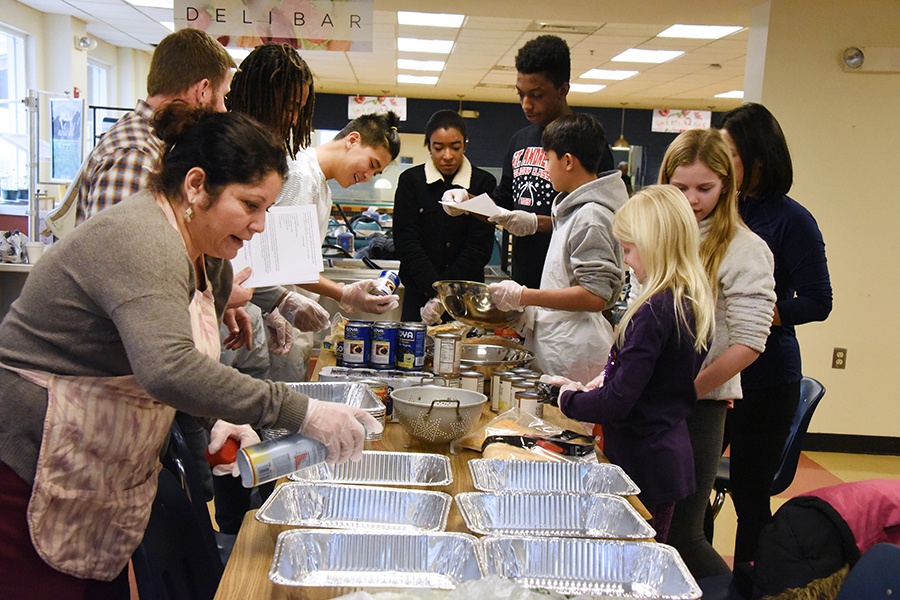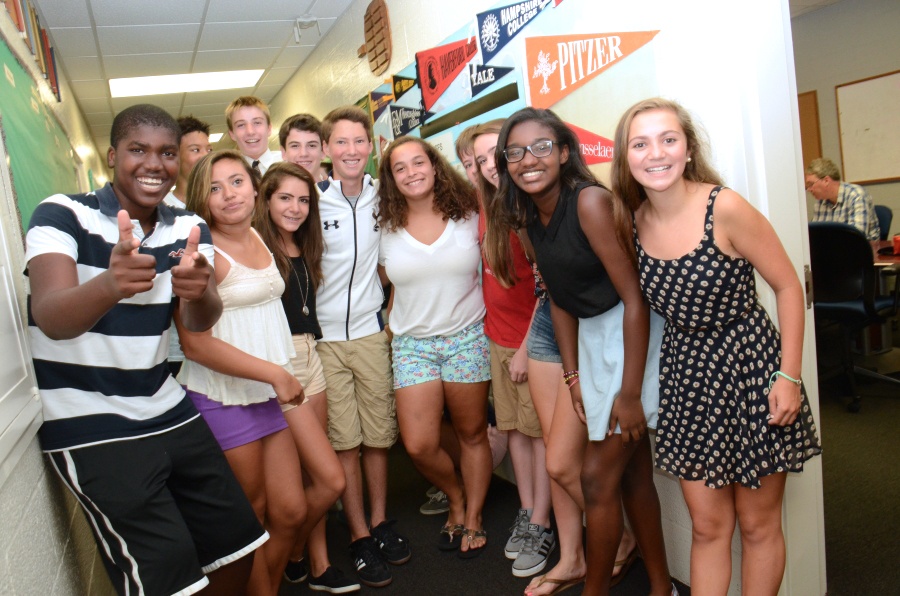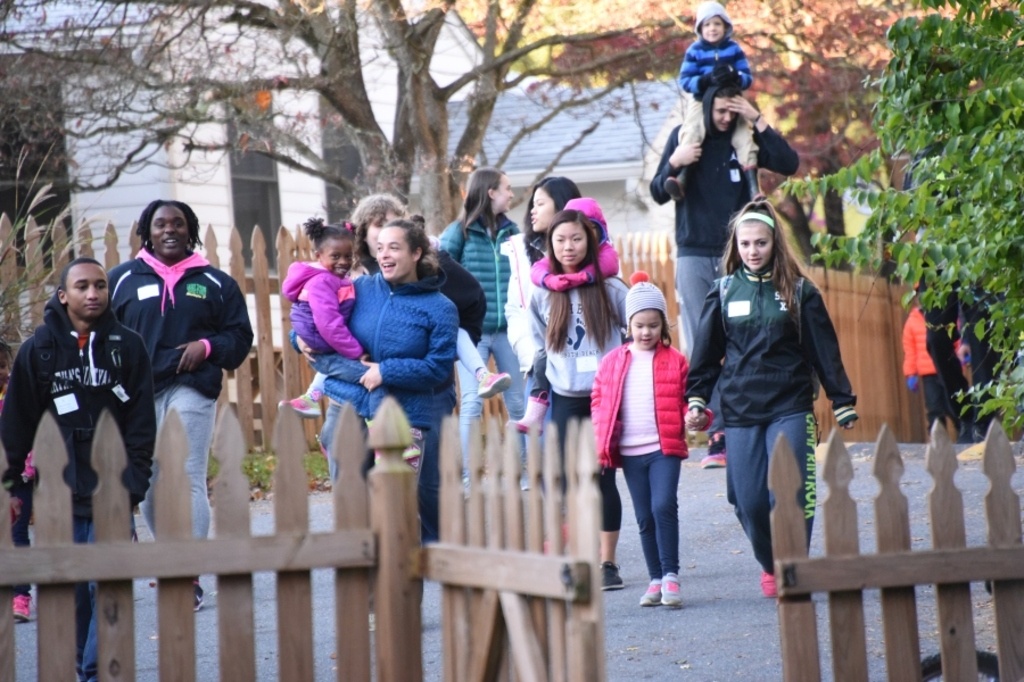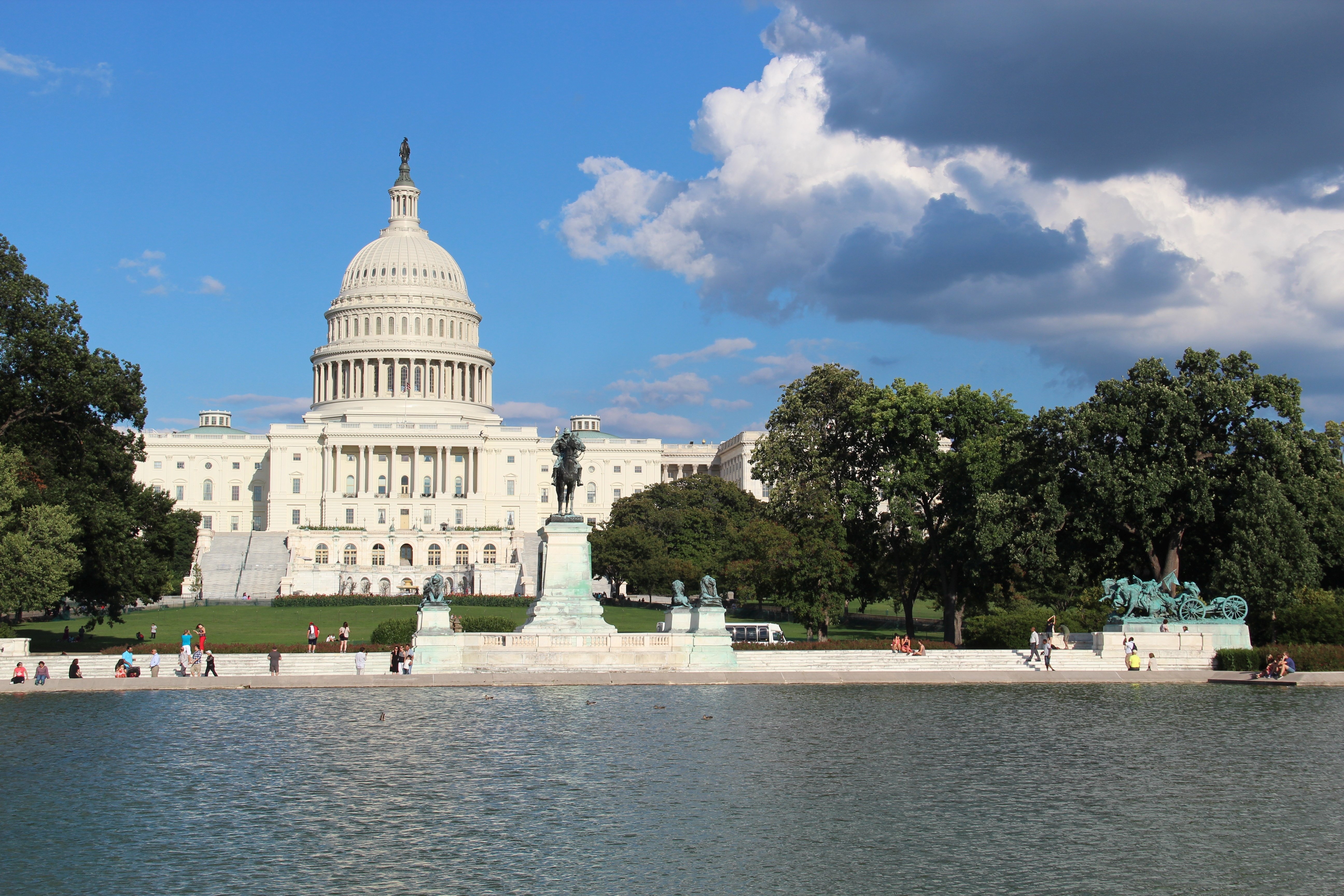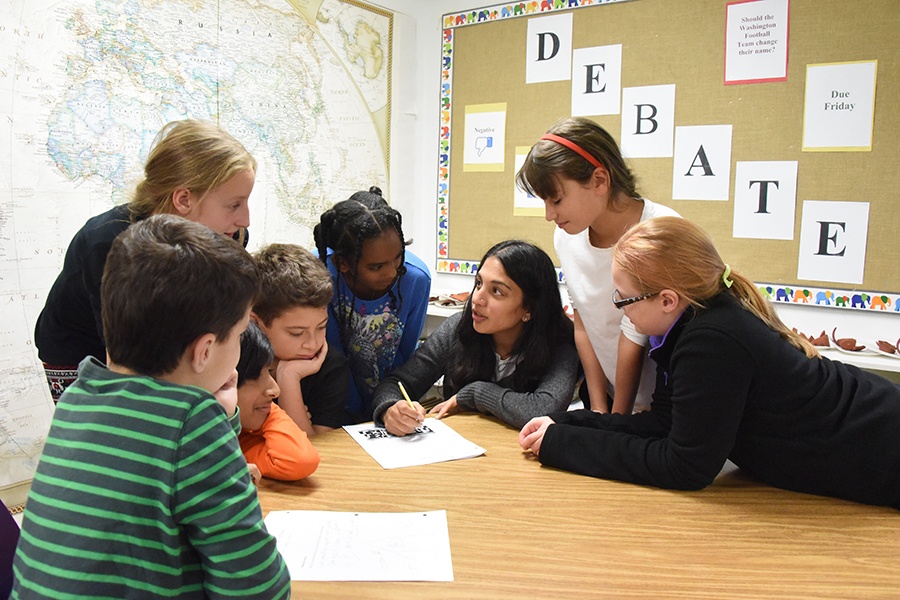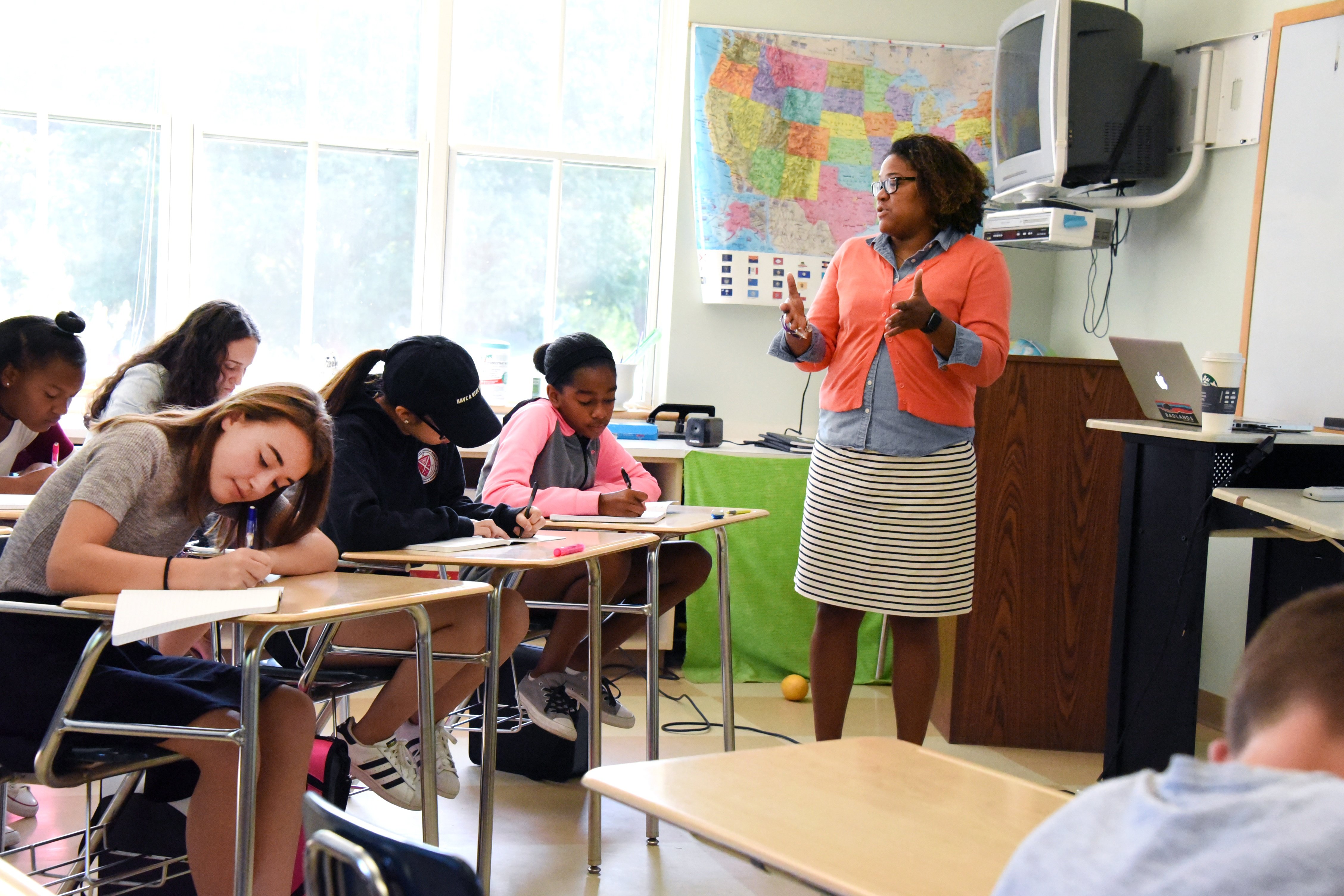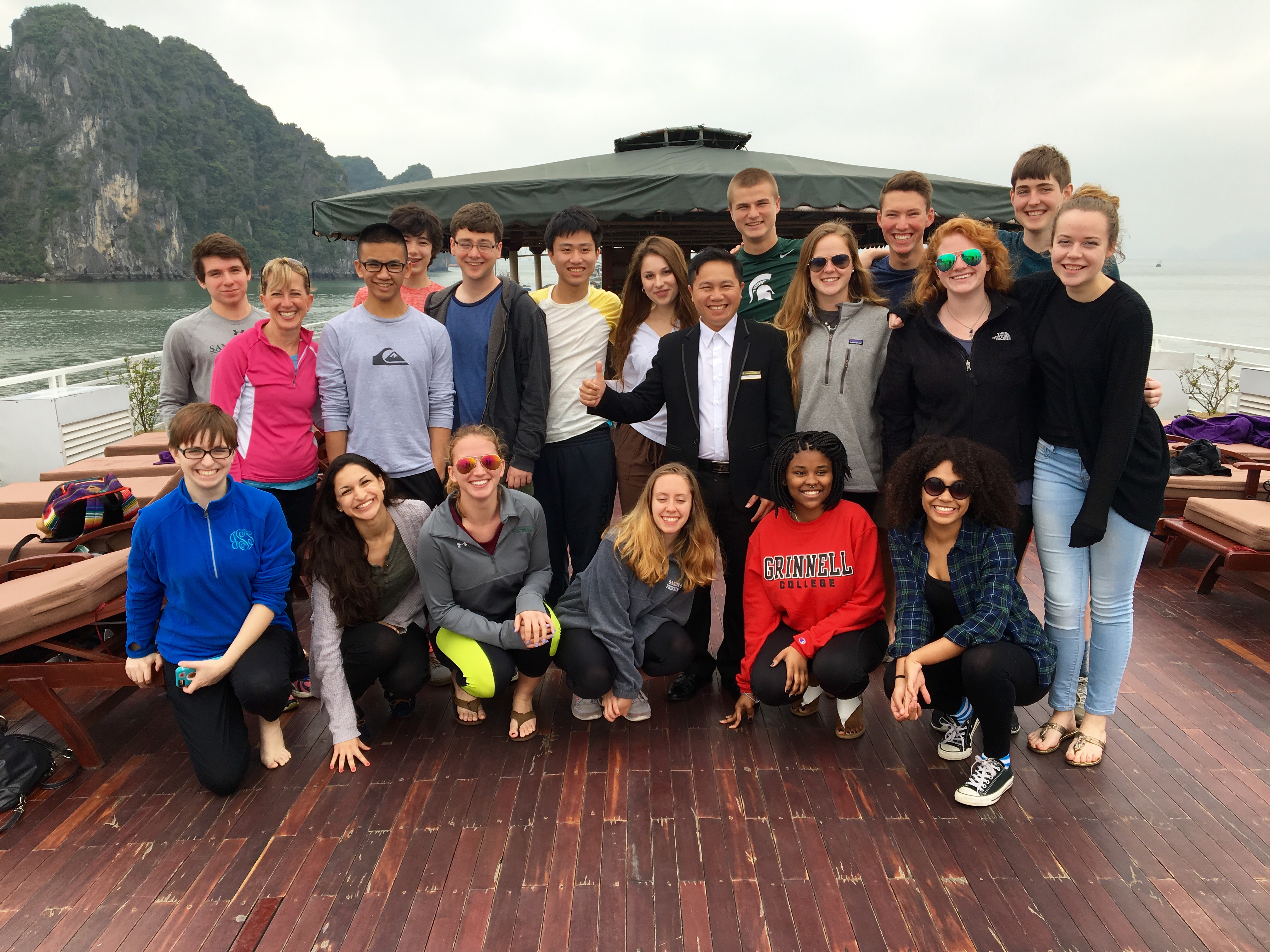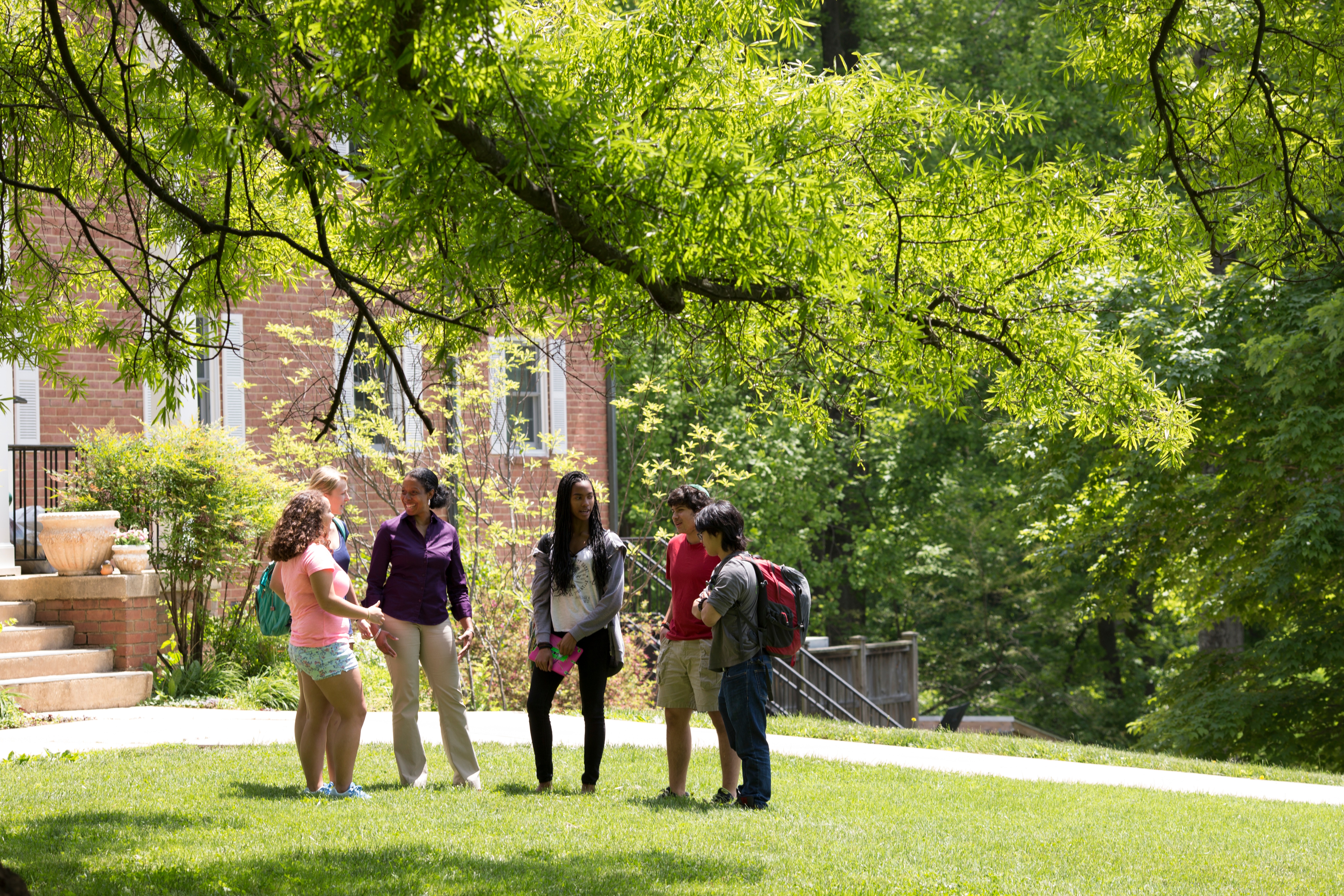Since its founding, Americans have understood education to be essential to democracy. In 1981, President Ronald Reagan, an icon of political conservatism, said "If we are to guard against ignorance and remain free, as Jefferson cautioned, it is the responsibility of every American to be informed." “Informed” implies more than knowing, it implies action and involvement. Democracy is about nothing if it is not about involvement. Good education (via good schools) not merely informs young citizens, it provides them with the critical tools to stay informed and act. This is the kind of education students acquire at Sandy Spring Friends School.
Global climate change is one critical and stark example of this need, taken right from the front pages reporting on our most recent national election. Amid the noise, it is not too dramatic to assert that our quality of life as humans, if not our survival as we know it, depend on us being able to sort out fact from spin, to evaluate sources of information, and to act now to address seemingly remote consequences. Consider these seven facts:
Fact 1: The World Wildlife Fund (WWF) last month released a
global environmental report revealing that
monitored populations of vertebrate wildlife have decreased by 58% since 1970. In other words, in under 50 years, less than my lifetime, we have lost over half of our planet’s wildlife population among species that we are monitoring, and who knows what the impact has been in those species beyond the circle of our understanding. The major drivers? Habitat loss, overharvesting/exploitation, climate change, and pollution - all human-driven factors. The WWF report is one of a multitude of informed scientific voices around the world reporting the same patterns.
Fact 2:
According to NASA, atmospheric CO2 levels have never exceeded 300 parts per million in the past 400,000 years. That is, until the last several decades when
the graph for CO2 levels has shot straight up, exceeding 300 ppm by 1950 and now shooting past 400 ppm. More importantly, there is no historical precedent for the rate of change we are now observing. We will see the consequences of these trends, not only in our childrens’ lifetimes, but likely in what is left of my generation’s lifetime.
We are living in the
Anthropocene, a term that defines our current era where human activity is the dominant factor driving our planet’s evolution. It will likely be a time of planetary degradation and decay, a rapid dismantling of natural systems that, over eons, created a relatively stable environment. For anyone with a basic (high school level) understanding of biodiversity and earth science, there are many, consistent and deeply disturbing indications that something is out of whack with our planet. The natural world has not developed the ability to adapt to such rapid changes, and every science-based indication says that we are sawing off the biological limb on which we are perched.
Fact 3:
Humans co-evolved along with Earth’s ecosystem and we are inseparable from it. Example: With every breath we breathe, we absorb deep into our bodies the Earth’s atmosphere, both what has evolved naturally and everything we have put into that atmosphere, including additional CO2, radioactive atoms from ‘50’s nuclear tests on Bikini Atoll, your neighbor’s car exhaust, and the spray oven cleaner used by a guy in Milwaukee, Wisconsin. The oxygen levels that are sustained by the world’s forests drive the activity of every cell in our bodies. The food we eat is grown in the finite soils of our Earth, relying on the sunlight from our only sun, nourished by the finite water of our planet, including all that we have dumped into the planet’s water systems. Try doing without breathing, eating, or drinking for a few days to experience how dependent we are on this one planet.
Fact 4: We aren’t going anywhere - Earth is our only foreseeable option. I love to read science fiction, and the genre is full of stories about travel to other planets, other worlds, etc. Star Trek is a wonderful, familiar example of this rosy vision. Someday this might actually happen. However, if one looks at how slowly we are developing the technology for interstellar travel, versus how quickly we are poisoning Earth, the slopes of these curves are not in our favor. Interstellar travel will be technologically complex and will demand extraordinary levels of expertise and resources, along with stable societal structures. Our damage to the planet is undermining the societal stability needed for such technologically advanced endeavors.
Moreover, there is growing evidence that
we may be biologically inseparable from our own planet’s ecosystem - we might not be able to successfully transplant ourselves as a species. The
science fiction book Aurora by Kim Stanley Robinson presents a more realistic vision of interstellar travel. Remaking an ecosystem elsewhere that will provide a livable place for future generations is unrealistic and impractical in any useful timeframe. It is also hard to imagine relocating of billions of people in this way. The energy alone needed to do this is well beyond any current or anticipated technology. So travel to distant planets is likely to be for a select few pioneers, leaving virtually all of our future generations to inherit our own soiled nest. Our descendents’ futures depend on the only planet we have to pass on to them.
Fact 5: There are no borders, fences, or walls that will protect America from the long-term effects of environmental degradation. Much of the campaign rhetoric flowing out of our recent national election conveyed a fortress mentality, that we will somehow be able to isolate ourselves from bad things happening elsewhere. This is simply unrealistic. A basic (again, high school level) understanding of civics and world history makes it clear that conflict, struggle and degradation in one part of the world creates ripple effects, often around the globe. As the planet’s ecosystem deteriorates, food will become more expensive and harder to produce, water supplies will decline, and conflict over resources will escalate. Even if American instincts are to retreat behind our own borders, leaving much of the world to fend for itself while we thrive among ourselves, this would be at best a temporary condition. We are all in this together.
Fact 6:
As one seeks to discern the priorities of a new administration, a discouraging collage is emerging. Is this a fact? If one accepts all (or even some) of facts 1-5 as truthful, Fact 6 logically follows. Climate skeptics and isolationist “America First” ideologues in key positions, walls on the border, an instinct to blame others, promises to withdraw from global climate agreements, calls to dismantle the EPA and the Department of Education, glorification of coal, and cultural tone-deafness all seem to point away from informed, educated leadership ready to address our global, existential climate issues.
So where to go, what to do? There is good news, or at least a hopeful pathway, for avoiding the depressing future implied above.
As Jefferson and Reagan asserted, the key is education. Humans have shown an amazing ability to cooperate, collaborate, and change course when the stakes are high and people are informed. The stakes are high. So how do we nurture an informed world citizenry? Students need an education that does not shelter them from the scientific and political realities described above and provides them skills needed to bring about change. Some key elements of such an education are:
- Ability to listen deeply and assess the veracity of information and sources
- Ability to communicate and convey information to others
- Ability to work collectively and cooperatively
- Ability to collaborate across differences in culture, language, and belief
- A sound foundation in scientific, historical, and societal knowledge
- Experiences that teach how to put ideas into action
- An understanding of what is at stake
- An understanding that some problems took generations to emerge, and they will take generations to solve.
This is the kind of education that teachers at
Sandy Spring Friends School seek to provide, summarized by us as “Question, Reflection, Action.” I take heart that we are not unique in our optimistic, hopeful outlook. Hope lies at the heart of virtually every educator I know. We need it now more than ever.

